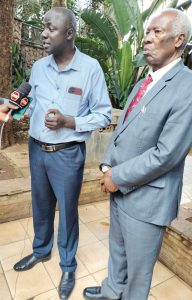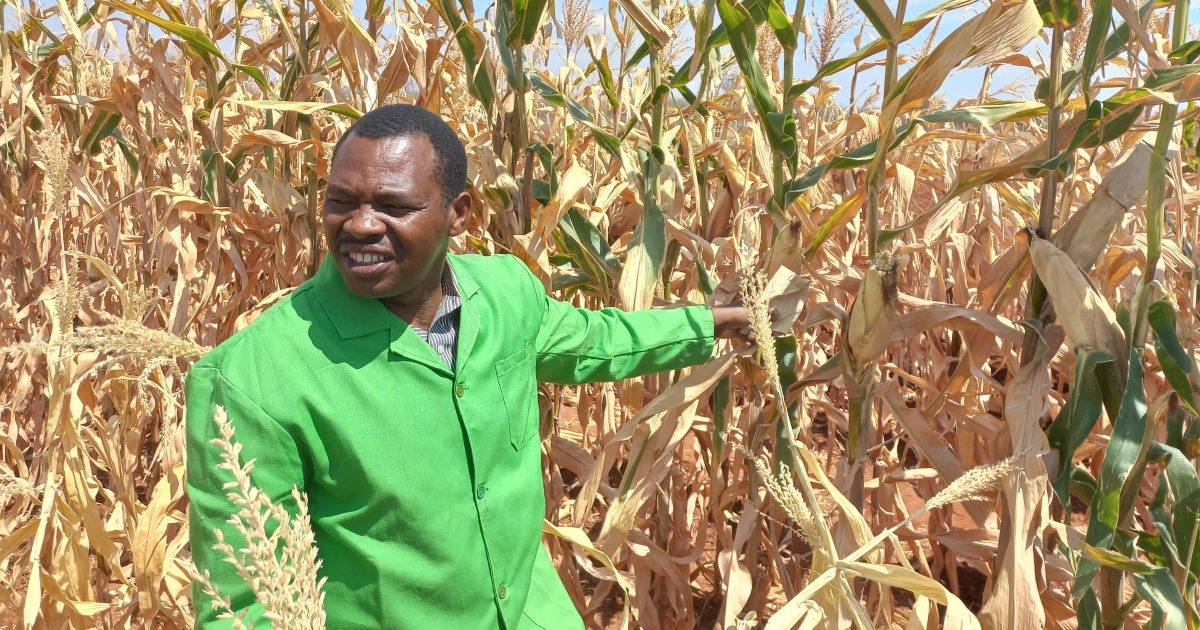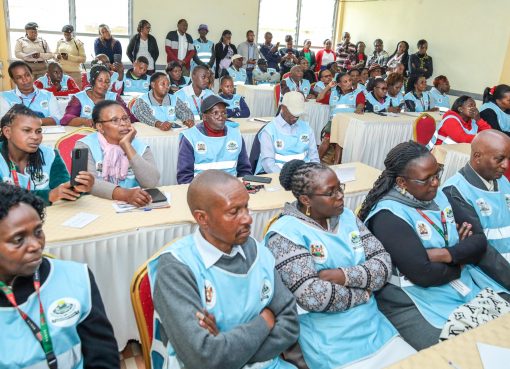University researchers want political leaders in the country educated on Genetically Modified Organisms (GMO) and other agricultural technologies.
This, the scientists argue, will help to demystify myths and the misconceptions surrounding the GMOs debate since the government lifted the ban on such products.
Under the Kenya University Biotech Consortium (KUBICO), the experts raised concern over the confusion shrouding the concept that divided the political class and Kenyans in general right in the middle since the lifting of the ban four months ago.
The researchers are further calling upon Parliament to strengthen legislations governing established regulatory agencies checking on food imports to enhance their mandate especially in inspecting Genetically Modified Organisms (GMO) that likely to enter the market next year.
They stated that to ensure Kenyans benefit from safe GMO food imports there was need for the institutions to be reinforced over and above intensive training of all the value chains.

The Director of Kenya Nutritionist and Dieticians Institute, Ministry of Health, Prof. Gordon Nguka explained that GMOs food are safe and thus for Kenyans to be comfortable there is need to enhance the governance structure of the key institutions.
“The institutions –National Biosafety Authority (NBA), Kenya Bureau of Standards (KEBS) and ministry of health, regulatory research institution such as NACOSTI among others play a key role in ensuring any food imports are safe and fit for human consumption”, he said during a consultative meeting with key professionals and societies organized by KUBICO..
Kenya, he noted is ready for GMO Products because there are mechanisms to ensure that crops like BT maize passes through properly regulated system and is secured in terms of safety to enhance our food and nutrition security
He explained that GM modification has nothing to do with fortification and that in terms of nutritional values there are 7 food groups namely milk and milk products, Fruits, Vegetables, Bread, cereals and Tubers, Meats, Fats and Sugars and only one among these major food groups that include maize and cassava fall under the bread cereals and tubers could be affected by the GMO
The experts are raising concern about high magnitude of misconceptions since the lifting the ban four months ago and Prof. Ratemo Michieka, Chairman National Research Fund (NRF) , the political class is endowed with opportunities to access the right information yet they are not passing the same to the masses.
“As experts we are aware that communication in science matters is not easy and thus the end users suffer from misunderstanding. This is largely attributed to lack of effective platforms to disseminate the accurate information on biotechnology. we have to equip parliamentarians with the necessary information to enhance their capacity to convey the same to their electorates,” said Prof Michieka.
He noted that there is a gap in extension services which are key in passing this information to the farmers and the general public.
“We must ensure the information is well packaged to build confidence of the farmer and consumer on the new technology. This information can also be prepared using local dialects that farmers can understand. It will also guarantee assurance that there is no known danger to current indigenous foods. The science being applied in GMOs zeros in only on maize and which is yet to be released,” Prof,. Michieka said.
As a regulatory body, he confirmed that there is no any research in the country and even in the region that can be passed before mechanisms that check on safety through institutions such as NEMA, Academy of Sciences which has over 200 scientists who have to check that what is done is in tandem with research and linkages worldwide.
“Our work is to monitor and advise accordingly and if we see danger on human, environment water and soil we will not fund the project against tenets on human survival “, Prof. Michieka said,
Prof Erick Mitema, a Regulatory Toxicologist, and a member of American Academy of clinical Toxicology (AACT) said that looking at the data available on BT maize, it does not show any adverse effects of any diseases like Cancer as people have been portraying.
“I am an international reviewer involved in reviews and looking at the data behind the BT I have not found any literature or study that links any BT maize to cancer and if there was, I know no one would allow the food to be consumed”, he said
Dr. Peris Onono, Executive Dean, School of Business economy and tourism at the Kenyatta University said understanding science behind what goes on in creating GMOs has been a challenge but if proper information and communication is given, it would remove the myth behind it.
“A lot of research has been going on in universities, creating new useful products to address problems that farmers face including production of home-grown GMO which is not from outside as the notion that Kenyans have that it is being imported”, she said.
The government, Dr. Onono said should build more capacity and give more resources to universities and scientists including those on research to produce commodities so that if farmers are to be exposed to the technology it would be after field trials and safety issues are fully addressed and later seeds will come from local market and not from outside,
Prof. Richard Oduor , registrar , Research at the Kenyatta University and Council Member of KUBICO explained that the government has the mechanism to promote these technologies that have been given royalty free and are home grown.

The process of development of GM from proof of concept to commercialization, Dr. Oduor added, is so stringent that when it passes through all the processes, all measures have been taken to ensure it is safe.
“GMO is safe to eat, it has been in existence for the last 26 years in the market, 15 years of developing it and we are talking of 40 years technology”, he said saying it is sad that those opposing the GM are behaving like it is a cutting edge technology and missing the point noting as a country we have already moved to genome editing and not transgenic,
With governments support and good will, relying on scientists and regulators the myth and problems behind the GM technology can be solved.
“Those who are against the technology should ask themselves questions , if they are comfortable with the insulins we get, the drugs with document side effects then we should not be discussing GMO with imaginary side effects that are not even documented”, Dr. Oduor said adding there is need to be far to the technology.
The government he noted should move fast and rally with scientists to tap into the technology and not to be left behind and follow the rest of the world
President Ruto, four months ago authorized the lifting of the ban on genetically modified crops, ending a 10-year moratorium that has sharply divided scientists and some Civil society organizations on the safety of GMOs.
Many scientists have welcomed the move, describing it as “long overdue” and a panacea for the drought and hunger in the country.
By Wangari Ndirangu




